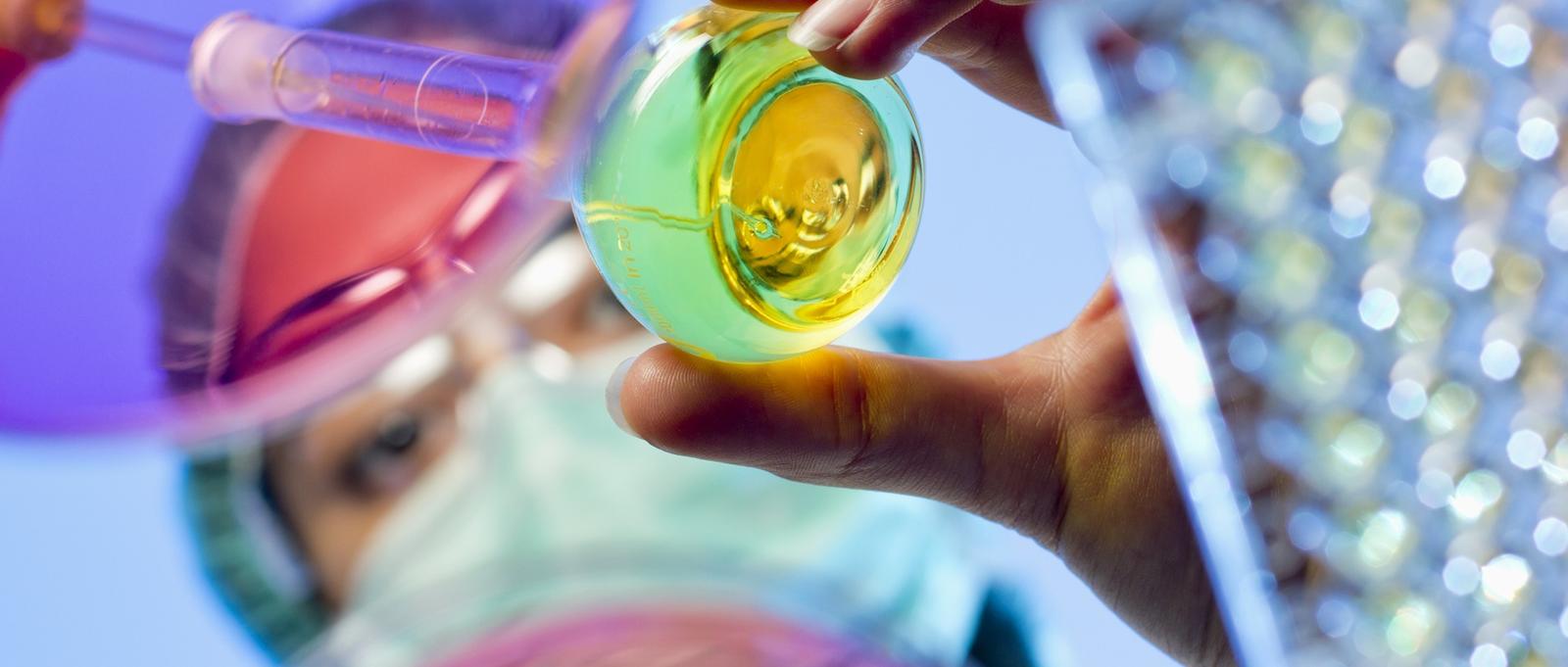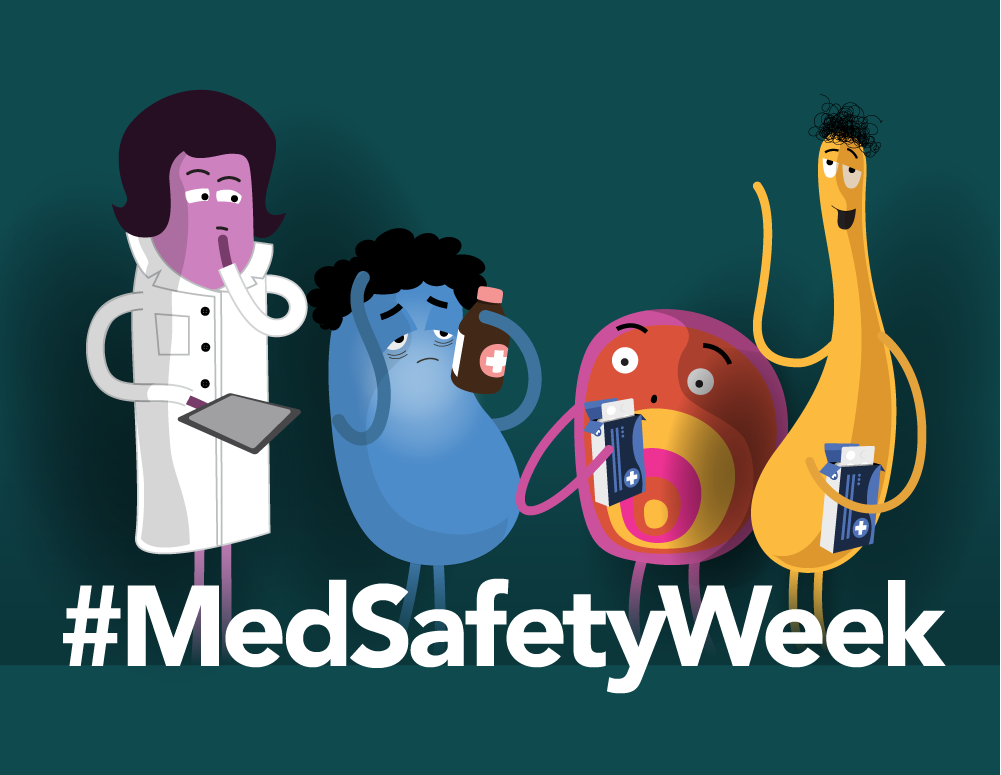
Essais cliniques - contribuer à la sécurité de vos médicaments.
Peer reviewed by Dr Krishna Vakharia, MRCGPLast updated by Victoria RawLast updated 23 Oct 2024
- TéléchargerTélécharger
- Partager
#MedSafetyWeek, promotes the Yellow Card scheme where you can report any suspected side effects from your medicine or health device. But, thanks to all the hard work that goes on before any medicines or devices come to the market, it is not something you will hopefully have to do very often.
All new drugs and jabs have to be thoroughly tested before they are allowed to be prescribed, which requires people to take part in clinical trials. Scientists go to great lengths to ensure these trials are safe.
Dans cet article :
Poursuivre la lecture ci-dessous
How do researchers ensure clinical trials are safe?
Any drug, vaccine, or medical device has to go through many stages of testing in laboratories before it can begin to be trialled on people.
All trials are strictly monitored to make sure that everyone involved is protected. Each trial also has a sponsor who is responsible for running the trial. This may be the organisation funding it, a hospital, or a university.
Protocol
First, researchers develop a protocol, which is essentially a detailed plan for the trial. Everyone involved in the trial must stick to the protocol, which helps to keep the participants safe.
The protocol outlines the purpose of the study, the goals, how many volunteers are needed, the medications or methods involved, how long the trial will last, and the type of information the researchers will collect.
#Semaine de la sécurité des médicaments

Trial monitoring
Before a clinical trial of a new treatment can begin, a government agency called the Medicines and Healthcare products Regulatory Agency (MHRA) needs to review and authorise it.
Another group called the Health Research Authority (HRA) also works to protect and promote the interests of patients and the public in health research. It's responsible for research ethics committees, which are independent groups that make sure a clinical trial is ethical, legal, well-designed and - most importantly - safe.
[yellow box]
All medical research involving people in the UK has to be approved by an independent research ethics committee.
These groups make sure that medical trials don't involve any unnecessary risk and include a safety plan.
Consentement éclairé
Researchers must also get informed consent from people participating in clinical trials. That means they must make people aware of the details of a trial. This includes interventions or procedures, the research plan and possible risks or side effects.
Before giving your consent, you’ll be given a patient information sheet, which has detailed information about the trial to help you decide whether you want to take part. You can also keep this to refer to during the trial. It's your choice whether you want to be in a trial and you can change your mind at any time.
Confidentialité
There are also strict confidentiality rules about who can and can’t see your personal information. Only the clinical and research teams who need to access your records will do so.
Choix des patients pour Les soins de santé

Santé générale et mode de vie
L'autodiagnostic fonctionne-t-il et quels en sont les dangers ?
L'autodiagnostic des problèmes de santé est devenu de plus en plus courant, en particulier avec le développement d'Internet, où de nombreuses ressources sont disponibles du bout des doigts. Les gens décident qu'ils ont une maladie avant même d'avoir mis les pieds dans le cabinet d'un médecin. Cependant, l'autodiagnostic peut-il être exact ? Et pourquoi est-ce parfois dangereux ?
par Emily Jane Bashforth

Santé générale et mode de vie
Exercice et activité physique
La pratique régulière d'une activité physique permet de se sentir bien dans sa peau et présente un certain nombre d'avantages pour la santé. Par exemple, elle réduit le risque de maladies cardiaques, d'accidents vasculaires cérébraux, d'hypertension artérielle, de nombreux cancers, de diabète de type 2 et d'amincissement des os (ostéoporose). Une activité physique régulière permet également de contrôler le poids et de réduire le stress. L'idéal est de pratiquer au moins 30 minutes d'activité physique d'intensité modérée au moins cinq jours par semaine, mais même 10 minutes valent mieux que rien. Vous devriez également vous efforcer de pratiquer au moins deux séances d'activités de renforcement musculaire par semaine.
par le Dr Philippa Vincent, MRCGP
What are the risks of clinical trials?
All medicines, vaccines and treatments can have side effects - including those that have been approved. All new treatments carry some risks, but researchers work to minimise these risks during clinical trials.
The risks posed to volunteers in clinical trials depend on what is being tested. For example, someone taking part in a drug trial may face side effects, while other trials may come with minimal risks. Researchers carry out risk assessments so they know what might happen during a trial and how to manage any issues.
However, the benefits of a trial may outweigh the risk. Taking part in a trial may give you access to new drugs - and it can be satisfying to know that you’re contributing to research.
Poursuivre la lecture ci-dessous
Are some clinical trial phases safer than others?
Clinical trials testing new treatments are placed into different stages called phases. The earliest phase trials - phase 0 or I - may look at whether a drug is safe or the side effects it causes. Later phases - II or III - trials aim to test whether a new treatment is better than existing treatments.
Each phase carries its own risk. Scientists may know less about the treatment in the earlier phases because it has been studied less. However, scientists will have examined the treatment thoroughly in laboratory research before any trials in humans begin.
[yellow box]
Click here for more information about #MedSafetyWeek and the Yellow Card Scheme for reporting any suspected side effects from your medicines. It’s easy to report using the Yellow Card scheme website, or using the free app. You can search for MHRA Yellow Card in the Google Play or Apple App Store.
Historique de l'article
Les informations contenues dans cette page ont été évaluées par des cliniciens qualifiés.
Next review due: 23 Oct 2025
23 Oct 2024 | Latest version
5 mai 2023 | Publié à l'origine
Auteur: :
Lydia Smith

Demandez, partagez, connectez-vous.
Parcourez les discussions, posez des questions et partagez vos expériences sur des centaines de sujets liés à la santé.

Vous ne vous sentez pas bien ?
Évaluez gratuitement vos symptômes en ligne